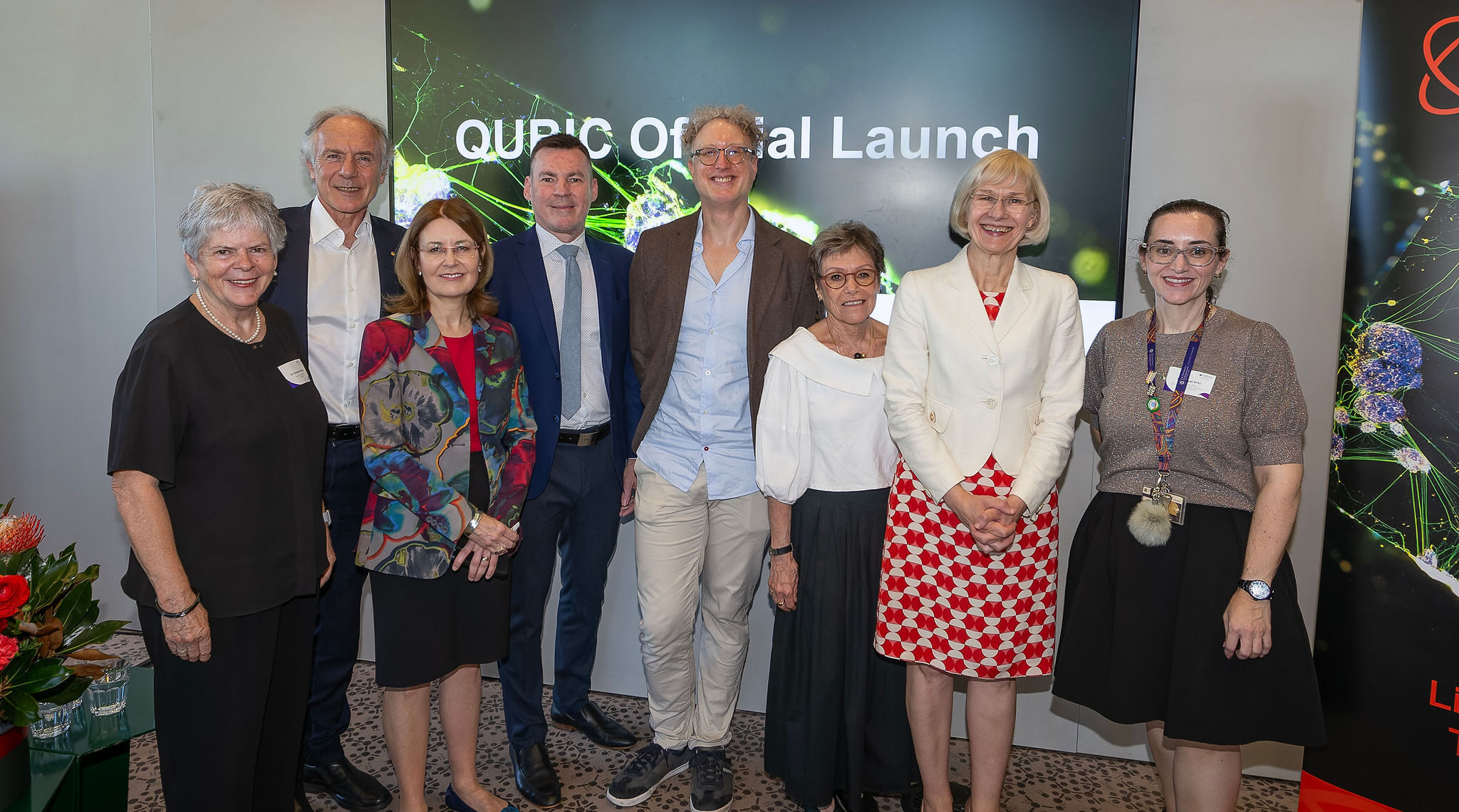QUBIC is thrilled to partner with organisations including the Australian Institute of Sport, Queensland Brain Institute, Sports Integrity Australia, and Griffith University in leading the development of cutting-edge quantum technologies for the 2032 Olympic and Paralympic Games in Brisbane. Having secured $4.7M in competitive funding through the Queensland Government’s Quantum and Advanced Technologies Strategy, these projects are set to revolutionise sports science and athlete care.
- Quantum-Enabled Low Field Magnetic Resonance Imaging: Technology providing high-performance athletes with advanced imaging capabilities, enhancing injury diagnosis and treatment.
- Quantum Concussion Diagnostics: Rapid and accurate on field concussion assessment for athlete safety across various sports.
- Quantum Exo-Garment: Wearable technology measuring muscle function, to optimise performance and prevent injuries.
- Quantum Assays for Anti-Doping Control: State-of-the-art method to ensure fair competition by detecting performance-enhancing substances with unprecedented accuracy
- Quantum Sensors for Bioelectrics: Quantum sensors for sports assessments through contactless measurement of bioelectrical fields to monitor heart function
- Quantum Sensors for Iron Deficiency Detection: Quantum sensors for the ultrasensitive measurement of iron, to optimise athlete health and performance
The investment stems from Queensland’s vision to become a world leader in quantum technologies. Fostering collaboration between academia, industry, and the government, these projects will demonstrate the practical applications of quantum technologies at the 2032 Games, with the potential to lead to breakthroughs beyond sports in areas such as medicine and healthcare.
Professor Warwick Bowen, Director of QUBIC states: “This funding allows us to showcase Queensland’s quantum capabilities on a global stage. Our innovations will not only benefit the 2032 Games but also contribute to long-term advancements in sports science and health.”
Dr Benjamin Carey, lead researcher on the Quantum Concussion Diagnostics project says: “Concussion is a massive concern in sports due to its link with increased risk of developing neurodegenerative diseases. Diagnosing concussion and its severity is crucial in providing informed and safe return-to-sport decisions after any incidents involving head trauma. Field-side concussion diagnostics will allow doctors to accurately and safely access any potential danger to athletes.”
The future of this technology has the potential to transform healthcare, promising personalised medicine and early-intervention of neurological disorders. “The magnetic-field sensors we design within this project will be pivotal in reducing the cost and accessibility of imaging,” says Dr Carey. “This has the potential to be made available in hospitals, imaging facilities and even doctors’ offices globally.”
QUBIC is the first national Centre anywhere in the world at the interface of quantum and biotechnology and is uniquely positioned at the forefront of these two fields. The Centre leverages the strengths and experience of a multi-disciplinary team of leading researchers, with industry and government partners to drive discovery, and advance the application of quantum technologies into the life sciences.
As QUBIC continues to bridge quantum science and biological science, these Olympic-focused projects mark a significant step towards realising the potential of quantum biotechnology in real-world applications.
Contact: Professor Warwick Bowen +61 (0) 404618722 / QUBIC Communications connect.qubic@uq.edu.au

